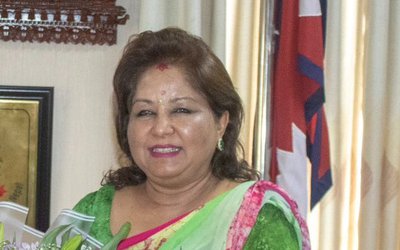In recent years, print media priorities have changed dramatically. A few years ago, the key factor for a successful rating page was the quality. The press was in great demand despite the fact that society did not receive information about scandals, feelings, rumors. Now the "yellow" newspapers are very popular. Their ratings are growing at a high speed exceeding the quality of the press. The right to honor the dignity, right to privacy, exploitation of human suffering is the worst sensationalism hidden in the press these days.
Journalism is essential for coexistence in a free society and for the balance of power which is a factor necessary in a democracy. Without journalism, orderly criticism would disappear, and without criticism we would fall into the empire of arbitrariness and fear. Abuses of power are not a monopoly of authoritarian regimes as they also occur in democracies, and although independent journalism cannot avoid them, the denunciation of those abuses fulfills in itself an extraordinarily valuable function.
The role of the journalists will continue to live up to their responsibilities and not allow the obvious majority opinion within the population. Journalism primarily has the task of critically controlling the political system and its protagonists and making society aware of inconsistencies.
Yellow newspapers are media that do not heed the general journalistic rules. This type of media is known as a newspaper that sells sensationalism and dramatization. Scary headlines written in very large font sizes, excessive use of photos and images, fake stories and interviews, misleading titles, sensationalism, dramatization and the use of visual techniques are used by yellow newspapers to attract readers.
The role of the journalists is to be the voice of people in need. The true mission of true journalism is supposed to be the voice of the voiceless. This link between journalism and democracy implies a social responsibility. We are living in the era of trolls. At a time when misinformation rhymes with opinion and social networks form a playground of choice for trolls, more and more media are given the mission to unravel the truth from the wrong and set the record straight as part of information transferred.
In the age of Twitter and Facebook, sagacious politicians who belong to unscrupulous groups use every informational trick they can to get their message published. That is why ethical journalism is not only desirable but essential. Without ethical journalism, democracy will be threatened. Journalism is being replaced by the story that creates a narration of the facts to the taste of the consumer. Elimination of the critical function of the press can distort reality, exaggerate the problems and promise non-existent paradises, which will ultimately aid in the destruction of human values.
Freedom of the press is in danger and with it the entire architecture of freedoms and rights that makeup a democracy. An effective democratic society is extremely difficult to conceive if the media is organized so as to undermine democratic values, Therefore, public debates on media policies are crucial for discussing the nature of democracy in any society.
The media must present true, comprehensive and intelligent reporting. They should not lie and must act as a forum for exchanging opinions, comments, and criticisms because the media not only serves as a source of information but also a forum for problem-solving. The media must present a clear picture of the society that explains the goals and values of society. Journalists and journalist companies must protect other individual rights of citizens such as the right of dignity and honor, physical and mental health rights, the right to express opinions, the right to reply in the media, the presumption of innocence, privacy rights, etc. in order to maintain the harmony of society.
Having a media channel and the ability to write, speak and capture video, does not make one a true journalist. To a larger extent, the principles of journalism are to provide information for the public to improve the quality of human life. As I see, 90% of media spoils the reputation of the remaining 10%.
Free press and independent journalism has always been the cornerstone of democracy, and as the voice of the public, they have always been privileged to carry out their mission. With the development of the internet and technology, the idea of the media has changed, as it has become wider and covers not only the traditional press but also online journalism, blogging, and social media. The Internet has become a new platform for voicing, posting discussions, and expressing opinions, both for the media and for individual bloggers.
Journalism is indispensable to democracy, and Democracy requires facts. In everyday communication, ethics is needed so that life in the community runs properly. It can be surmised that yellow journalism is a plague to journalism.

Deepak Raj Joshi
(The author is a lecturer and IT consultant. He also writes fiction under the name of Kapeed Joshi. He can be reached by email at info@dipakjoshi.com.np.)
- Participatory Democracy
- Dec 07, 2023
- Rise Of Populism Boon Or A Bane
- Aug 13, 2023
- The Collapse Of Confidence And The Rise Of RSP
- May 17, 2023
- Lottocracy
- Apr 30, 2023
- Political Rot With Social Deterioration
- Jan 19, 2023
















